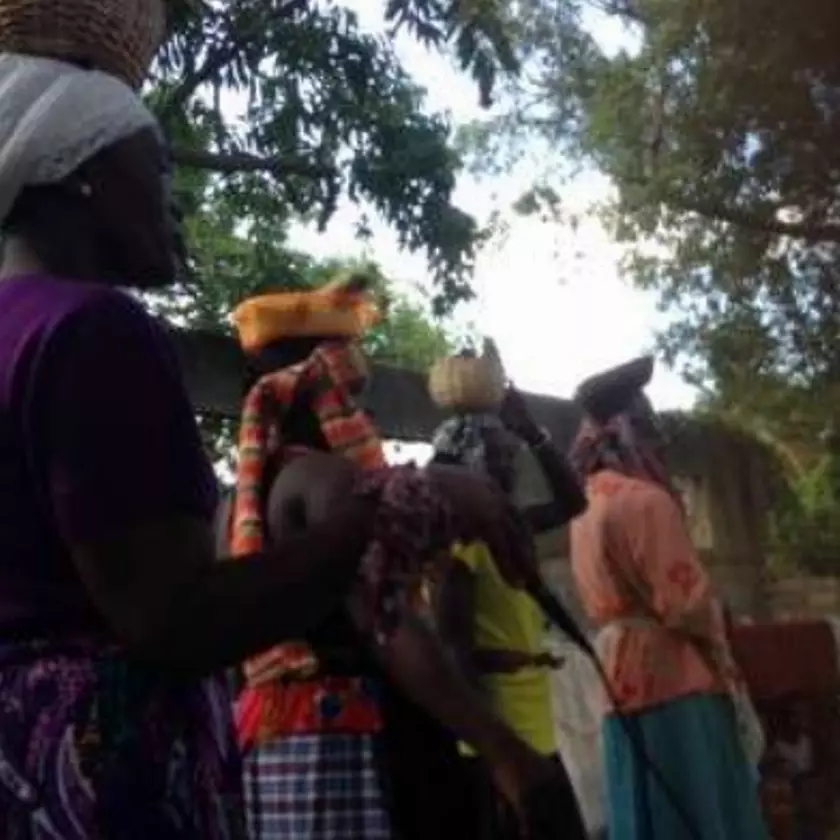Women's Group Graduation
This weekend I had the privilege of participating in a celebration of 30 women finishing one of our Women’s Groups. While planning, they referred to it as a party. Closer to the date, that word was changed from party to graduation.
Graduations are a big deal here. People dress up, buy presents, and come from far away to see their friends and family graduate. The women who have been participating in these groups had never graduated high school. Never gone to a university. This was their first graduation. And their graduation was quite grand indeed.
I pulled around a bend in the road to find the village’s brass band playing at top volume. There was a yard that had been lined with sheets and curtains to provide beautifully colored walls for the backdrop. Chair were set up, families waiting. There was a man leading the festivities, reminding people to clap and stand at certain times. And then the women.
They were dressed in their best- beautiful clothing and robes to signify their graduation. They walked in proudly, and proceeded to sing, greeting the audience. Then the ceremony officially began. I sat on a stage made up of sticks and re-used plywood. I positioned my chair carefully over a big stick, feeling the platform shift with every person who walked across it. The women began to do a series of sketches, showing the audience the information they had learned during their time in class. They talked about malnutrition, identifying a baby in respiratory distress, family planning, and what foods to eat to give you different vitamins. The oldest woman in the group got up and performed a song/monologue praising the women of Haiti for the work their do for their children, their husband, and their country. “We are leaders,” she cried, “we are pushing Haiti to become better”
As the evening ended, one of the women gave a speech, thanking everyone for making these groups possible. “We will continue until every Mother knows how to care for her own child,” she said. “To know how to care for them at home and when it is time to take them to the hospital.”
The influence these women will have on their neighbors– I can’t even grasp it. That they will help produce healthier women and children in their own communities. They have been equipped- through training, learning songs, and discussions- to better care for their own. They have learned this information in the best way they know how, few of them knowing how to read and write well. They can sing it, speak it, and share it in their own way and with their own voice.
One of the songs they sang included a chorus that simply said that training that isn’t animated and lively is no training at all. And we do love our lively training!


